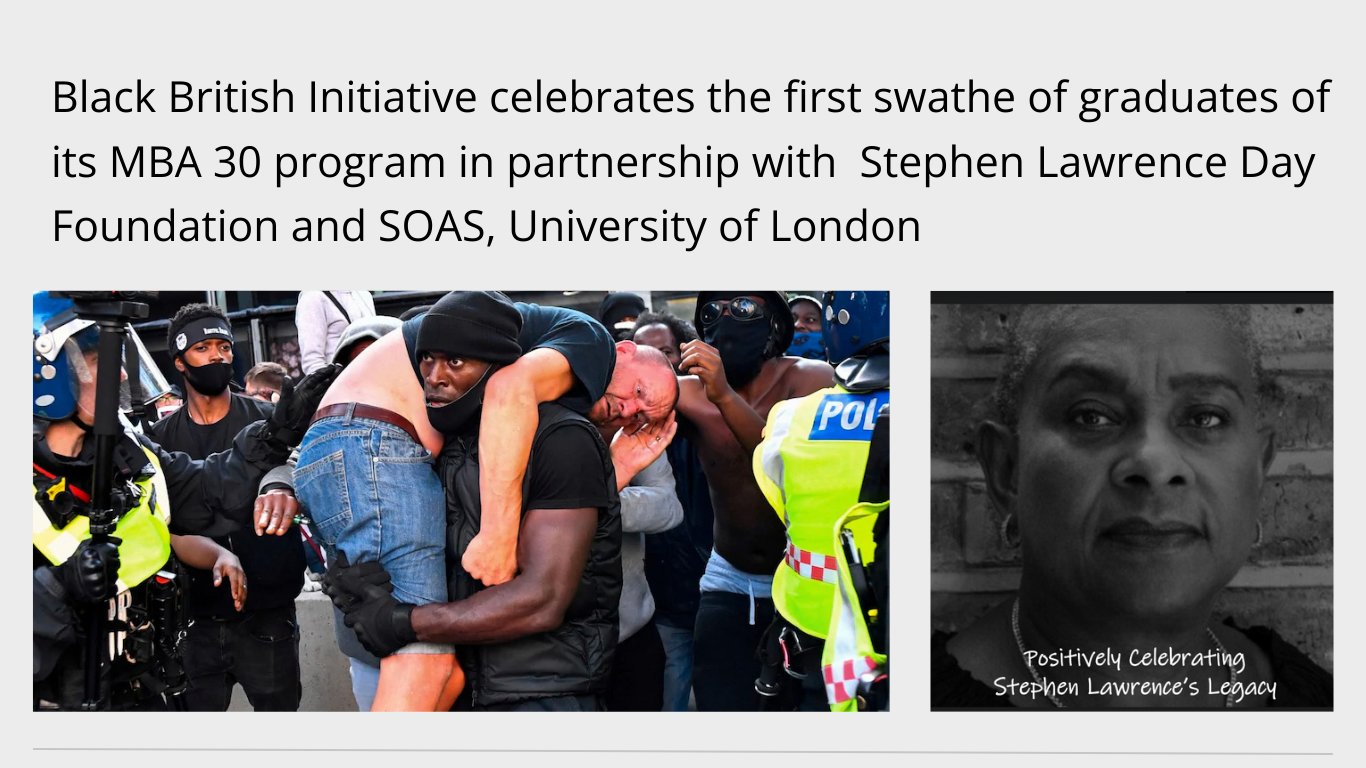
The newly released LSB report recommends steps on how financial institutions can help promote a fair and inclusive business lending environment, to deliver better outcomes for all business customers, regardless of background.
Facts
- 1 million of the 6 million businesses in the UK are ethnic minority-led – Minority Businesses Matter
- £25 billion contributed to the UK economy by business owners from Black, Asian, and other ethnic minority groups – FSB
- 1/3 of UK unicorns are ethnic minority founded – Sifted
This report by the Lending Standards Board presents considerations for firms as they look to address challenges relating to access and inclusion for ethnic minority-led businesses. Systemic and structural changes need to be considered to address issues of access and inclusion, and traditional industry standards have so far perpetuated an exclusive lending model that fails to match the requirements of a diverse and evolving UK economy.
According to Emma Lovell, Chief Executive of the Lending Standards Board: “Ethnic minority-led businesses have a huge amount to offer both business banking and lending customers and the economy as a whole. However, research shows that some ethnic minority-led businesses are dissuaded from accessing finance. In part, this is due to the cumulative effect that being hindered in accessing finance has had on ethnic minority-led businesses and communities. When ethnic minority-led businesses experience banking and lending that is not designed with them in mind, the impact of this often manifests in disengagement. A lack of access to business banking in this way holds back their potential and limits opportunities to grow and flourish.”
A lack of confidence in the banking and lending sector means that some ethnic minority-led businesses (EMBs) are not requesting or accessing the finance they need. There are numerous reasons for this, some of which have been reported on previously. These include cultural differences, and experiences of discrimination or a perception of unfair treatment. Research completed on EMBs within the UK shows that there is the potential to increase their scale and number, with benefits for the businesses themselves and the wider economy.
“Ethnic minority business owners from Black, Asian, and other ethnic minority groups, make a significant contribution of an estimated £25 billion to the UK economy annually. However, these entrepreneurs face barriers in accessing finance, which hinders their potential to grow.” – Diana Chrouch OBE Special Advisor to APPG for Ethnic Minority Business Owners Chair of National Ethnic Minority Business Policy for FSB
A proactive and strategic approach to working with different communities could be valuable to increase firms’ understanding of what is needed to build trust with EMBs. EMBs want clear information about what products and services are available and how to utilise them. This may include, for example, clear information about what is needed to apply for a business bank account. There is a feeling that the information is ‘out there’ but many EMBs are unsure how to access it. Better signposting and explanations (such as when rejected for borrowing), the availability of relationship managers (RMs), and tailored approaches to underwriting are options that can help contribute to increased access for EMBs. The lack of trust between some EMBs towards banks and lenders means that any effort to promote access needs to be honest, empathetic, and effective. By reviewing how they currently approach and support EMBs, banks and lenders can continually develop to deliver better outcomes. Sometimes this could require taking an unorthodox or tailored approach, for example, on how credit decisions are made for certain groups. This is an independent business decision, but it may be that those firms who make such choices will be rewarded through the untapped potential of emerging EMBs.
To deliver better outcomes for EMBs, firms should consider how they engage with diverse communities and seek to harness the potential within them.
“Banks and lenders don’t understand or appreciate the cultural or religious influences when it comes to how ethnic minority businesses operate, and they need to take a more innovative approach to help do so.” Ammar Mirza CBE
Diversity across EMBs – Firms should not think of EMBs as one group that should be targeted as a whole. Instead, ethnic minority strategies should consider how to support a variety of different customer groups that may need additional support or attention.
Engagement:
‘Maybe what you do is say: “Would you like to see a minority manager?” Because some people feel comfortable with those who can relate to their background.’ Colin Francis – Founder and Chair, Recocoa
- Firms will need to work constructively and creatively with ethnic minority-led businesses, and avoid a ‘one size fits all’ approach, to ensure that no customers are left behind. When EMBs are rejected for finance, they may be told it is due to their credit rating. However, there was concern that without more education on CRAs and how they work, EMBs would not be in a position to improve their scores. It could be beneficial for firms to think about the information they provide businesses of all types who are rejected for credit.
- Reaching out to communities is an important step to getting a better understanding of EMBs’ wants and needs. However, this outreach needs to go beyond the surface level and should lead to positive change across the product and customer journey.
- Firms should not rely on a small pool of organisations to reflect the views of large and differing communities. Solving this requires a community engagement strategy that seeks to get a mixture of views reflecting different ethnicities, regions, and customer types. Stakeholder mapping exercises can show which organisations or groups could be engaged to get a clearer understanding of what is needed.
The personal touch
- One way to increase access to finance and business banking services more widely is to improve awareness and understanding of what is available. For large corporates, this sort of knowledge may be institutional due to the wide range of professional support they possess (such as legal and finance teams etc.) However, for entrepreneurs, start-ups, or those from underserved communities, education could be extremely beneficial. When thinking about EMBs, this could also help to increase confidence in the bank or lender.
- It would be beneficial for firms to consider the training and guidance that customer-facing employees get on communicating reasons for any declined applications.
- Pairing this with specific and relevant signposting to alternative sources of finance would also be likely to have a beneficial impact in building trust between EMBs towards banks and lenders. Ensuring that customers are provided with alternative sources, which are regularly reviewed, up-to-date, and culturally and business appropriate, would demonstrate a positive commitment to customers.
Communication and data–
‘There is still a trust and confidence issue out there. There is a perception that there is unequal treatment towards ethnic minority business owners.’ Efuru Obua – Chair, British African Business Network
- How firms communicate with EMBs and their communities could be a critical component when it comes to increasing trust and engagement. This includes acting in an empathetic manner and seeking to support EMB customers through a tailored approach.
- Specific communication barriers can arise when English is not the native or first language of some EMB owners. Without taking steps to mitigate this, such as by providing information in a preferred language or alternative format, it could become challenging for some EMB owners to make themselves understood, and to understand and digest the information they themselves were provided with.
- It is important that firms share the work they are doing on inclusion and engagement widely, and they should celebrate success in terms of increases in EMB customer numbers or similar metrics. This is because potential EMB customers want to know that there is a strategy in place to cater for them and what this entails. For example, if new community hubs are established, this needs to be communicated in a targeted way to drive engagement and improve trust.
Recruitment – ‘Ethnic minority business owners are often stereotyped and seen as risky businesses by financial institutions.’ Dionne Edwards – Nubian Noire
- A more diverse workforce has the potential to increase confidence within some ethnic minority communities.
- When thinking about recruiting and employing a more diverse range of employees that represent the local community, firms could consider targeting and publishing adverts within local forums or newspapers, in an attempt to widen the pool of candidates. It would be a matter for the individual firm to decide, but it could be that a commitment is made to interview every ethnic minority candidate who reached a certain minimum standard relating to the role.
- Just as important as recruitment is retention. There is no advantage to hiring more diverse team members if they leave soon after. Monitoring the attrition rate of new hires, including those from ethnic minorities, is important to understand if current onboarding, coaching, and support frameworks are appropriate.
- There should also be thought given to the level and roles in which ethnic minorities are being recruited. For example, to improve representation in business banking, firms may want to look at, amongst others, those being hired in relationship management roles.













Comment